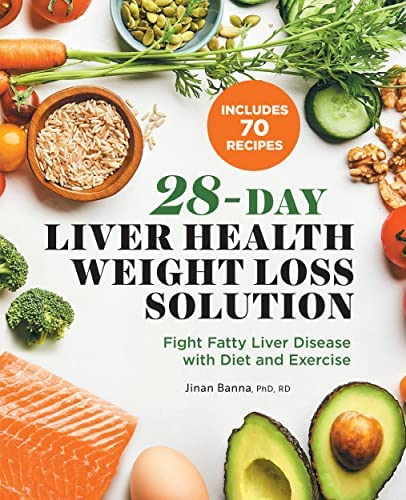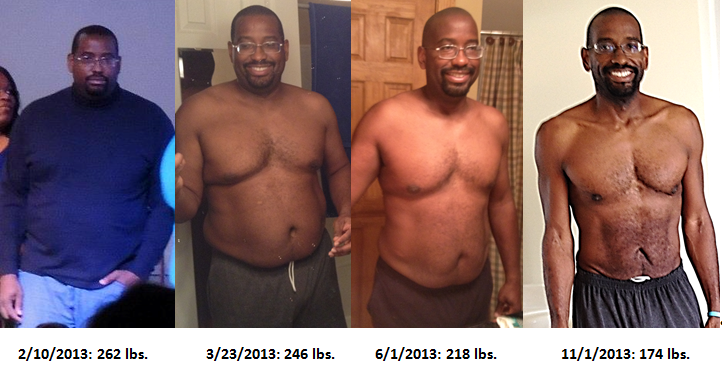
Making healthy choices can help prevent breast cancer. Balance your diet with fruits and vegetables. Limit sugary drinks and refined carbohydrates. In moderation, you should also consume lean protein and fish. Exercise can also be beneficial in the prevention of breast carcinoma and may even have a protective effect. Here are some helpful tips. Read on to learn more.
Avoiding alcohol is a very important habit to practice. It increases breast cancer risk. The greater your alcohol consumption, the higher your chance of developing breast cancer. It is important to quit smoking and limit your red meat consumption. A diet high in fruits and vegetables can reduce your risk of developing breast cancer and help you to maintain a healthy weight. Research has shown that overweight or obese women are more likely to get breast cancer than those who aren’t.

A healthy diet should include cruciferous veggies. These vegetables contain carotenoids. This is an antioxidant that may reduce your risk of developing ER-negative breast carcinoma. A balanced diet is one that includes a high amount of plant-based protein and low amounts of meat. Don't drink alcohol. It is a well-known carcinogen and may cause an increase in estrogen levels and DNA damage. Research is ongoing, but it can improve your health and provide you with more energy.
Maintaining a healthy weight is another great tip to reduce your breast cancer risk. Being overweight or obese will increase the risk of developing the disease. Your body will produce more estrogen after you reach menopause. This increases your chances of getting breast cancer. Women who consume more alcohol than three glasses per day should limit their intake to one to two drinks per week. You can replace animal fats with healthy fats and eat more fresh fruits and vegetables if you are overweight.
You should exercise regularly and eat healthy food. These foods contain high levels of vitamins, antioxidants, and minerals. They will protect you from breast cancer and keep the body strong. They will help you recover from treatment and ensure your body is well-nourished. It is a great way of staying healthy and happy. This will help you avoid anxiety and depression. Smokers should reduce their alcohol consumption.

As we've already said, obesity can cause breast cancer. Regular exercise can help reduce the risk of getting this disease. There are many options for exercising. There are many ways to exercise. You can run around your neighborhood, go for a jog, or use your gym to do your own workouts. By following these tips, you can reduce your chances of getting breast cancer and living a healthier life. They will help to reduce your risk of getting this disease.
FAQ
Does Weightlifting Burn Fat Faster?
You can lose more fat by weight lifting, but only when you do it in conjunction with cardio.
You should do weightlifting after your cardio workouts to maximize its benefits.
Weightlifting, when done properly, increases your heart rate.
If you don't mix it with cardio, your body won't notice significant changes.
Is it true that kidney stones can be caused by overeating protein?
Protein is important for maintaining healthy bones and tissue. Too much protein can cause calcium to be excreted through the urine. This can cause kidney stones.
It is important to remember that not all people get kidney stones from eating more than 2g protein per kilogram (2.2lbs) of body weight. High amounts of protein can be consumed by some people without causing kidney stones.
By being careful with your sodium intake, you can prevent kidney stones. The kidneys regulate the amount of sodium they consume. Too much sodium can lead to kidney stones.
If you have kidney stone, you might also consider reducing your protein intake. The majority of adults need protein for half their daily caloric needs. A reduction in protein intake will likely result in weight loss.
If you do decide to eat more protein, don't go overboard. Try to eat less than 20% protein in total calories.
What's a good workout routine for daily?
Regular exercise is essential to staying fit. It doesn't matter what type of fitness activity you choose as long as you do it regularly. The most important thing is consistency. You must be consistent if you are to see results.
Begin with a small amount of daily exercise (like walking). You can gradually increase the amount of exercise you do until you have 30 minutes each day. You can choose to run, swim, weight train, do yoga or take aerobics classes.
You should try to ensure that you exercise most days of the week. You should not miss any sessions unless there is a good reason.
When exercising outside, make sure you have the right clothing and shoes. It is important to take into account the weather conditions, and how they may affect your ability to exercise safely.
When exercising, ensure you drink lots of water. Drinking alcohol during exercise can cause dehydration. Caffeinated beverages such as tea, coffee, and cola should be avoided. They will not only give you more energy but also dehydrate you.
It's common to feel tired after your first workout. Keep going with your workouts and you'll soon feel more energized.
Is Cardio Better Than Strength Training?
Both are equally great. For those who want to gain muscle quicker, cardio is a better choice.
Cardio burns far more calories per min than strength training. It also burns fat more efficiently.
Although strength training can increase muscle mass, it is more difficult than cardio to do so.
Statistics
- The PRS enabled risk stratification for overall prostate cancer and lethal disease with a four-fold difference between men in the highest and lowest quartiles (HR, 4.32; 95% confidence interval [CI], 3.16-5.89). (pubmed.ncbi.nlm.nih.gov)
- An estimated calorie range for moderately active adult males falls between 2,200 to 2,800 calories per day, depending on age. (eatright.org)
- Get free shipping and 25% off today. (healthline.com)
- Are You One of the 20% of Guys (mh.co.za)
- 10 pounds in a month is likely during a lean bulking phase, especially for beginners. (muscleandstrength.com)
External Links
How To
How do I lose fat by exercising?
Exercise burns calories through increased metabolism and oxygen consumption.
Exercise at a moderate intensity to safely lose weight.
These are some tips to help you lose fat while working out:
-
Cardio exercises can include running, walking, swimming or cycling.
-
Three times per week, exercise for 30 minutes.
-
You can add strength training into your exercise routine if you're looking to lose even more weight.
-
Avoid intense exercise. You can build muscle without having to lose muscle tissue.
-
During exercise, drink plenty of water. Water helps flush out toxins and keep your body properly hydrated.
-
After working out, make sure to drink low-fat proteins shakes. Protein shakes boost energy and repair muscle tissue.
-
Smaller meals are better for you.
-
Don't skip breakfast! You can feel tired and slow if you skip breakfast.
-
Take care of your mind. Stressful situations can affect your metabolism.
-
Keep a positive attitude. Studies show that people who believe they're overweight gain more weight than those who think they look pleasing.
-
Get enough rest. Lack of sleep makes it harder to burn fat.
-
Keep active. Keep moving every hour.
-
Maintain a healthy diet. A healthy diet will help you feel fuller for longer.
-
Find ways to relax. A tense mind doesn't allow your body to release stress hormones that break down muscle tissue.
A balanced diet is one that includes all of the essential nutrients required for growth.
Six small meals per day is better than three large meals. This allows your body time to digest what you've eaten.
For strong bones to be maintained, you need approximately 500mg of calcium per day. Calcium is found in dairy products like yogurt, fortified milk beverages, orange juices, cereals and bread.
Calcium can be found in leafy green veggies, beans, tofu and nuts as well as seeds, nuts and cheese.
Vitamin D is required by the body to absorb calcium. Vitamin D is found in eggs yolk, fatty fish and fortified foods.
Vitamin E is essential for skin health. Vitamin E can be found in vegetable oils as well as wheat germ oil, peanuts and almonds.
Your body requires zinc for normal immune function and wound healing. Zinc is found in oysters, legumes, meats, whole grains, and seafood.
Zinc deficiency may cause fatigue, loss appetite, depression, and impaired immunity.
Eating too much sugar causes insulin resistance, which increases blood glucose levels. Insulin resistance can lead to weight gain.
Insulin resistance occurs when the bloodstream is full of free radicals. Free radicals refer to molecules that contain unpaired electrons. They can damage cell membranes and other body parts.
Free radicals come mainly from food additives, pesticides, herbicides, preservatives, smoking, air pollution, radiation, chemicals in cosmetics, lotions, and household cleaning supplies.
Free radical damage can cause cancer, heart disease and diabetes, as well as arthritis, asthma, and other diseases.
The best way to avoid free radicals is to eat a balanced diet high in antioxidants. Antioxidants protect against oxidative damage.
Vitamin C can be found in citrus fruits. Beta carotene can be found in carrots. Sweet potatoes. Tomatoes. Carrots. Sweet potatoes. Spinach. Broccoli. Cantaloupe. Vitamin E is found in nuts. Olive oil, avocados.
Selenium, copper as well as manganese and zinc are some other antioxidant nutrients.
Selenium protects cells from free radical damage. Selenium is found in Brazil nuts, tuna, liver, kidney, shrimp, cod, turkey, beef, lamb, pork, and chicken.
Copper protects the brain, eyes, lungs, and red blood cells. Copper can be found in shellfish and poultry as well as meat and organ meats.
Manganese is essential for bone structure. Manganese is found in brown rice, spinach, bananas, prunes, raisins, oatmeal, and lentils.
Zinc helps with normal growth, reproduction, as well as wound healing. Zn can also be found in white fish, lean cuts of meat, poultry, and eggs.